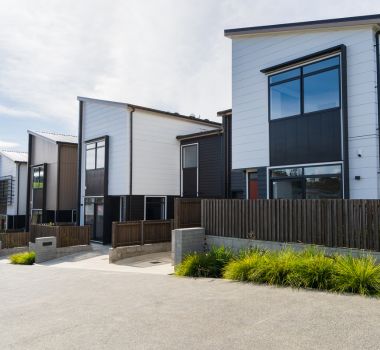We must explain to you how all seds this mistakens idea off denouncing pleasures and praising pain was born and I will give you a completed accounts off the system and expound the actually teaching.
Welcome to Ace One
- Call Us 1800 223 111
- e-mail us admin@aceone.au
- Get Quote
-
ONE OF AUSTRALIA'S LARGEST PROPERTY PORTFOLIOS
Your Gateway to Unmatched Investment Opportunities
SECURE YOUR HERITAGE
FOR TOMORROW
Bespoke guidance for sustaining wealth through every generation
ASSET MANAGEMENT WITH
5-STAR STRATEGIES
Elevate your portfolio with data-driven insights and expert guidance.
STREAMLINED INVESTING,
LASTING SAVINGS
Strategic asset allocation designed to capitalise on every tax advantage.

Residential Property
Investment
Residential Property
Investment

Commercial Property
Investments
Commercial Property
Investments

SMSF Properties
SMSF Properties

Co-LivingandNDIS/
SDA Properties
Co-LivingandNDIS/
SDA Properties
Welcome To Ace One
Ace One Society - One Vision. One Society. One Legacy, it’s all about becoming One!
At Ace One, We Build Wealth with Purpose
True success comes from visionary leadership and strategic investments. At Ace One, we take a holistic approach to wealth creation, offering exclusive opportunities in property development, real estate acquisitions, and high-growth investment sectors. Our team of seasoned professionals ensures every step of your investment journey is guided with expertise, precision, and confidence.
A Commitment to Integrity & Growth
Integrity is the foundation of everything we do. Whether you’re expanding your property portfolio, securing high-yield investments, or seeking expert guidance in wealth-building strategies, our tailored solutions align with your goals. With Ace One, you gain access to premium investment opportunities that safeguard your legacy and maximise long-term returns.

Unlock Your Investment Potential with Ace One
At Ace One, we empower our clients to unlock their true investment potential by providing exclusive opportunities in property, real estate development, and high-growth investment sectors.
Our Expertise, Your Advantage
- Property Investments: We source and structure premium real estate opportunities, from high-yield developments to long-term wealth-building assets.
- Strategic Acquisitions: Whether buying or selling, our team delivers data-driven insights and expert guidance to maximise returns.
- Diversified Investment Opportunities: Beyond real estate, we connect you to high-growth ventures that align with your financial goals.
Your Next Step Towards Wealth Creation
Building and protecting wealth is a journey, and we walk it with you. With a commitment to integrity and long-term success, our strategies are designed to help you expand your portfolio, maximise returns, and secure your legacy.
Ready to Elevate Your Investment Journey?
Discover how Ace One can help you build a future defined by prosperity, security, and lasting success. Whether you’re expanding your property portfolio, seeking high-growth investment opportunities, or securing long-term wealth, our team is here to guide you.
📩 Get in touch today and start building your personalised investment roadmap.
Ace One
Our Services
- SMSF Services
- Family office services
- Asset Management
- Tax Implications
Expert SMSF Guidance Through Our Trusted Partners
-
Managing a Self-Managed Superannuation Fund (SMSF) requires time, expertise, and a deep understanding of legislative, regulatory, and investment complexities. While SMSFs offer powerful wealth-building opportunities, navigating their administration can be overwhelming.
At Ace One , we connect you with our trusted network of independent SMSF specialists who excel in setup, compliance, and strategic investment guidance. Their expertise ensures seamless management, allowing you to focus on growing your wealth with confidence—without the stress of handling intricate SMSF requirements on your own.
Get in touch today to explore how our expert partners can support your SMSF journey.

Family office services
-
Ace One is qualified, experienced, and dedicated to providing personalised financial planning and investment advisory services that prioritise your unique goals. While we don’t have in-house financial advisors, we connect you with independent professionals who share our unwavering commitment to guiding you toward financial success with expert, unbiased advice. A tailored approach for your unique needs at Ace one, we prioritise understanding your distinct financial aspirations. Our collaborative process ensures proactive engagement with expert advisors who craft solutions tailored to your specific circumstances.

Asset Management
-
At Ace One, we believe that asset management is more than just tracking numbers on a balance sheet. It’s about harnessing the true potential of your assets whether they’re physical, financial, or intellectual to drive growth, efficiency, and resilience in an ever-evolving marketplace. We don’t just manage assets; we empower them to work harder, smarter, and longer for your business.

Tax Implications
-
Investing in property comes with a host of financial responsibilities and opportunities. Understanding eligible expenses, depreciation, and strategies to maximise tax savings can significantly improve your financial outcomes. Below, we explore key concepts and actionable advice for property investors to make the most of their tax deductions.

Our Commitment to You
Uncover Real Opportunities
Leverage our up-to-the-minute market insights to pinpoint "on" and "off" market properties that match your exact criteria and offer true value.
Protect Your
Purchase
From initial screening to final walkthrough, we meticulously verify every aspect of the property; ensuring you never face surprises down the line.
Rely on Proven Expertise
Drawing on decades of real estate experience, we’ll filter out the noise and present you with a refined list of high potential options saving you time and stress.
Maximise Returns & Negotiate Wisely
Our dedicated analysis reveals your ongoing costs upfront, and our skilled negotiators work to secure your ideal property at the most favorable price.
Ace One
Why Choose Ace One?
We provide unmatched expertise, exclusive investments, and strategic wealth-building opportunities—ensuring your financial success in a competitive landscape.
Decades of Expertise
With over 30 years of experience in the local market, we bring invaluable knowledge and insights to the table, ensuring every investment decision is well-guided.
Nationwide Access
Our portfolio includes premium properties across the country, providing you with extensive options to diversify and expand your investments.
Tailored Financial Solutions
At Ace One, we don’t believe in a one-size-fits-all approach. We connect you with trusted wealth managers, financial advisors, and SMSF specialists who craft bespoke strategies tailored to your investment goals—ensuring a seamless path to financial success.
Deal Negotiation Expertise
Our team excels at identifying and negotiating the best deals, ensuring maximum returns for your investments.
Trusted Network
Partnering with industry-leading professionals, Ace One ensures a seamless and reliable experience—whether you're buying, selling, or exploring new investment opportunities. Backed by a trusted network that has successfully transacted over $2 billion dollars, we connect you to exclusive opportunities designed for long-term growth and security.
Commitment to Integrity
At Ace One, every transaction is treated with the utmost honesty and transparency, giving you peace of mind and confidence in your investment journey.
Events
Ready to unlock your financial future? Join our free, power-packed investor workshops and discover the secrets to building wealth through property!
Ace One
Client Testimonials
Fantastic and affordable investment concept, absolute pleasure dealing with you guys, very professional and very understanding, suitable for just about anyone!!!
evan zikos
I had the opportunity to be a part of Ace One’s revolutionary investment portfolio. Kudos to Suryansh Singh for tailoring a highly lucrative strategy for us.
Parth Sarthy
AceOne has a very cost-effective and simple approach for real estate investment. They have made investing across multiple properties more accessible and convenient for everyone. Their team is very friendly and Adi in particular addressed all my queries/concerns regarding fractional property ownership.
Samantha Smith
Great concept and really well priced properties on offer.
Aigner P
A great way to diversify and so far the journey experience has been great .
Yaz Adams
Very friendly team with amazing opportunities..I love the fractional property opportunity they are offering
Laura Bailey
Highly recommend. If you are looking into opportunities of smart property investments then don’t let this opportunity pass by. My experience with the Ace One Society team is amazing, I visited the office in person with my partner and found the team to be such lovely professionals. The warm welcome with coffee and brownies was extra personal touch that me and my partner admired. Our doubts and questions were cleared with such patients in a genuine and caring manner. So happy that at the end of our meeting (which was over an hour and half long) me and my partner decided to embark on this new journey with Ace One Society.
Ritch P
This is the most promising investment I have come across in a while. This is the future. Sury my client advisor was professional and very positive person to talk to.
Vishwadeep Singh
Dealing with Ace One has been a pleasure. What a game changing product! We are exited to see how their fractional realestate investment opportunity develops in the coming years. With the high cost of property and capital at the moment, coupled with and the current lack supply this is a fantastic opportunity to get exposure to the real estate market with less risk and without having to overcome the countless barriers to entry. Suryansh took the time to walk us through in great detail and it really is a no brainer once you get your head around it.
Nick Campbell
I am so glad I came across Ace One, I found "Fractional property" to be an attractive and innovative concept especially for a new investor like myself. It opened doors for me to invest in real estate from just 40k, which surprised me and made me really happy. They are a family run business and they treat you like family. Most of interactions were with Suryansh Singh who explained everything in a very clear and easy manner. I am definitely recommending them to all my friends and family.
Soumya Sharma
I am delighted to share my exceptional experience with Ace One Society, particularly with the support of Sury! Investing with them has been a game-changer for me, offering a stress-free and low-cost entry into the real estate market through fractional ownership. Sury's guidance has been invaluable, ensuring that I understand the process thoroughly and can confidently navigate the world of investments without the usual complexities. The absence of mortgages adds a layer of simplicity to the process, allowing me to focus on the exciting prospects of high returns.
Ash Sharp
My interaction with Ace One has been amazing so far. I've owned several investments properties and I'm quite amazed with how fractional ownership works. The benefits are hard to ignore and what I like the most is how they've made investing across multiple properties soo accessible for everyone. Great job guys!!
Joey Ho
I have amazing experience and team is really good and supportive with lot of information and guiding through each step to find the investment property. I would really recommend people to have a connect with Ace for investment. Excellent Ace team.
vikas samantaray
If you're looking to dip your toes into real estate, Ace One Society is your go-to. It's real estate investing made simple and smart. Their platform? Super intuitive. The team? Absolute pros. You get in on top-notch property deals without the headache of traditional real estate barriers. I'm seeing solid returns, and honestly, it's been a breeze. Highly recommend!
Sanwal Shergill
Choose a Name for Your SMSF
Select a name that reflects the fund’s purpose and aligns with your long-term goals.
Determine Trustee Structure
Consult a financial advisor or accountant to decide whether an individual or corporate trustee structure suits your needs.
Develop an Investment Strategy
Develop an Investment Strategy
Obtain Essential Registrations
Secure a Tax File Number (TFN) and Australian Business Number (ABN). These can often be acquired simultaneously.
Open a Dedicated Bank Account
Many banks require certified copies of the trust deed, TFN, and ABN certificates before activation.
Transfer Superannuation Balances
Notify your existing superfund provider of your intent to roll over your balance into the new SMSF.
Helping Informed Financial Decisions
Company Information
Ace One is a distinguished investment and real estate firm specialising in wealth creation and property investment strategies. With a strong presence in Brisbane and the Gold Coast, and offerings across Australia, Ace One is committed to delivering tailored solutions that align with clients’ financial goals. Ace One prioritizes understanding each client’s unique aspirations, ensuring personalised strategies that foster long-term success. By partnering with a network of seasoned professionals, the firm offers a seamless and reliable experience in buying, selling, or exploring new investment opportunities.
Copyright © 2025 Ace One. All Rights Reserved.
About Us
Contact Info
-
Adress
Romanian 9520 Faires Farm Road, Carlsbad, NC 28213.
-
Phone
-
Email
Copyright © 2024 Ace One. All Rights Reserved.
